Drug Discovery in Prevention and Treatment of COVID-19
XuetangX
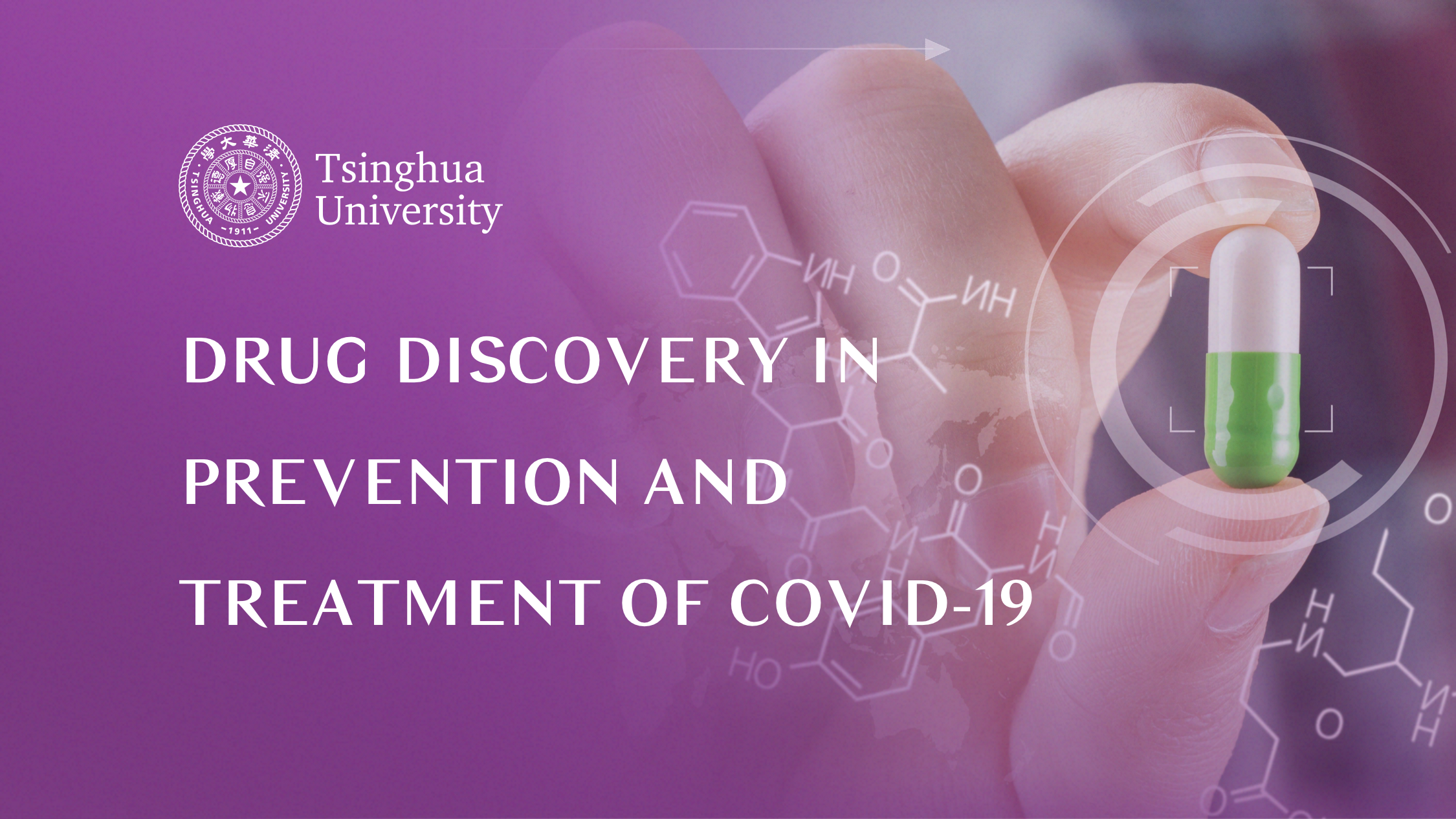
 |
About This Course
The beginning of 2020 have witnessed the emergence of COVID-19escalating to a world pandemic. This virus have claimed more than 100,000 death reported by WHO, 10 times more than the seasonal flu does. Since the severity of the virus is becoming crystal clear, it is essential to grasp related knowledge to prepare us for self-protection and future drug development. Faculty in School of Pharmaceutical Sciences Tsinghua University, partnering with the Global Health Drug Discovery Institute (GHDDI) has been rapidly organizing to set up this curriculum – drug discovery in prevention and treatment of COVID-19 – in order to provide information about virus detection and our ways of fighting against the ongoing outbreak.
This curriculum includes research into fundamental knowledge of clinical diagnosis, prevention and treatment of COVID-19. Different strategies for drug development targeting this virus, the specific virus-host interaction of COVID-19 and how artificial intelligence (AI) contributes to the drug discovery will also be introduced during our lessens. In addition, Tsinghua University now open free access to researchers, clinicians and policymakers, hoping to offer some insights to responders around the world to be better equipped.
Course Staff
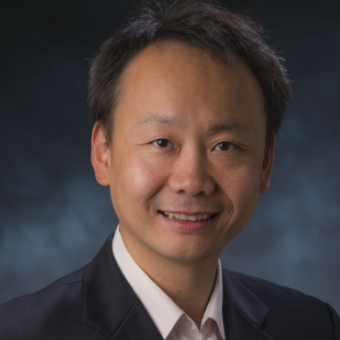 Professor Hang Hubert Yin was born in Beijing in 1976. After studying for a bachelor's degree at Peking University, he received his PhD from Yale University in 2004 under the supervision of Professor Andrew Hamilton and then spent a post-doctoral period at the University of Pennsylvania School of Medicine with Professor William DeGrado. Prior to joining Tsinghua, he was a tenured faculty member of the University of Colorado Boulder. His research interests lie at the interface of chemistry, biology, and engineering with particular focuses on structure-based drug design, extracellular vesicles, cell signaling biochemistry, biotechnology development, and membrane protein simulations. Professor Yin is a recipient of many accolades for his research in chemical biology and drug discovery, including the National Science Fund for Distinguished Young Scholars, Beijing Outstanding Young Scientist, American Chemical Society David W. Robertson Award for Excellence in Medicinal Chemistry, CAPA Distinguished Junior Faculty Award, NSF CAREER Award, AACR Gertrude B. Elion Cancer Research Award, Sidney Kimmel Scholars Award, and HHMI Collaborative Innovation Award among others. Professor Yin is currently a member-at-large of the Board of Directors of the International Society of Extracellular Vesicles (ISEV).
Professor Hang Hubert Yin was born in Beijing in 1976. After studying for a bachelor's degree at Peking University, he received his PhD from Yale University in 2004 under the supervision of Professor Andrew Hamilton and then spent a post-doctoral period at the University of Pennsylvania School of Medicine with Professor William DeGrado. Prior to joining Tsinghua, he was a tenured faculty member of the University of Colorado Boulder. His research interests lie at the interface of chemistry, biology, and engineering with particular focuses on structure-based drug design, extracellular vesicles, cell signaling biochemistry, biotechnology development, and membrane protein simulations. Professor Yin is a recipient of many accolades for his research in chemical biology and drug discovery, including the National Science Fund for Distinguished Young Scholars, Beijing Outstanding Young Scientist, American Chemical Society David W. Robertson Award for Excellence in Medicinal Chemistry, CAPA Distinguished Junior Faculty Award, NSF CAREER Award, AACR Gertrude B. Elion Cancer Research Award, Sidney Kimmel Scholars Award, and HHMI Collaborative Innovation Award among others. Professor Yin is currently a member-at-large of the Board of Directors of the International Society of Extracellular Vesicles (ISEV).
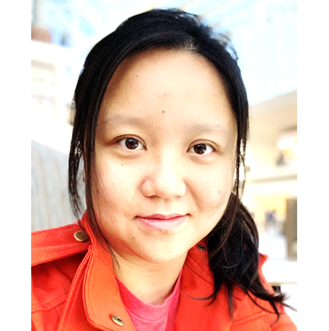 Dr. Lurong Pan is currently a senior investigator at Global Health Drug Discovery Institute (GHDDI), where she leads the development of the institute’s AI drug discovery platform. She received her B.S. in Chemistry from Nanjing University in 2007, a Ph.D. in Computational Chemistry from University of Alabama at Birmingham (UAB) in 2013 and a M.S. in Computer Science from Georgia Tech in 2017. Before joining GHDDI, she worked at UAB Medicine for over 9 years where she gained extensive computational biology research experience with neurodegeneration, cardiovascular disease, cancer and rare diseases. She has expertise with physics-based QM/MD methods and data-driven machine learning approaches to simulate chemical and biological systems for transdisciplinary research in medicine. She is also an IBM certificated big data architect with industrial data engineering and data science consulting experience.
Dr. Lurong Pan is currently a senior investigator at Global Health Drug Discovery Institute (GHDDI), where she leads the development of the institute’s AI drug discovery platform. She received her B.S. in Chemistry from Nanjing University in 2007, a Ph.D. in Computational Chemistry from University of Alabama at Birmingham (UAB) in 2013 and a M.S. in Computer Science from Georgia Tech in 2017. Before joining GHDDI, she worked at UAB Medicine for over 9 years where she gained extensive computational biology research experience with neurodegeneration, cardiovascular disease, cancer and rare diseases. She has expertise with physics-based QM/MD methods and data-driven machine learning approaches to simulate chemical and biological systems for transdisciplinary research in medicine. She is also an IBM certificated big data architect with industrial data engineering and data science consulting experience.
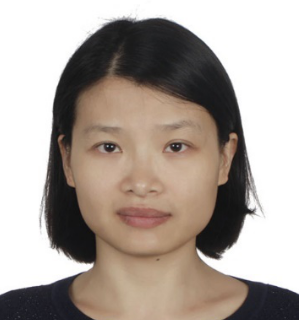 Dr. Hua is currently Senior Investigator and CADD section head in Chemistry Department at GHDDI. She received her B.S. from University of Science and Technology of China in 2002, and Ph.D in chemical physics from Columbia University under the supervision of Prof. Bruce J. Berne. Then she conducted his postdoc research at University of California, San Francisco (UCSF) in 2008 followed by a joint postdoc training at UCSF and Global Blood Therapeutics, Inc in 2011, working on identifying small molecule oral drug against sickle cell disease with structured based methods. After continuing her research on methodology development at National Institute of Biological Sciences, Beijing in 2014 supported by MSD China Postdoc program, she joined GHDDI in 2017 focusing on accelerating drug discovery projects with advanced computational methods.
Dr. Hua is currently Senior Investigator and CADD section head in Chemistry Department at GHDDI. She received her B.S. from University of Science and Technology of China in 2002, and Ph.D in chemical physics from Columbia University under the supervision of Prof. Bruce J. Berne. Then she conducted his postdoc research at University of California, San Francisco (UCSF) in 2008 followed by a joint postdoc training at UCSF and Global Blood Therapeutics, Inc in 2011, working on identifying small molecule oral drug against sickle cell disease with structured based methods. After continuing her research on methodology development at National Institute of Biological Sciences, Beijing in 2014 supported by MSD China Postdoc program, she joined GHDDI in 2017 focusing on accelerating drug discovery projects with advanced computational methods.
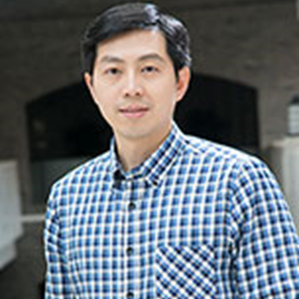 Professor Yu Rao received his BA degree in 1999 from Shandong Medical University and his master degree in 2002 from Shenyang Pharmaceutical University under the supervision of Prof. Ji-Xiang Chen. He obtained the Ph.D. degree from University of Georgia by working on the synthesis of biologically important complex oligosaccharides under the supervision of Prof. Geert-Jan Boons (2007). He then carried out post-doctorial research work at Sloan-kettering Cancer Center under the supervision of Prof. Sameul J. Danishefsky (2007-2010), focusing on the synthesis of bioactive natural products. He joined School of Medicine in Tsinghua University in January of 2010. Prof. Rao’s research interests are mainly focused on developing novel small molecule based therapeutics for drug-resistant cancer and infectious disease treatments. Prof. Rao’s laboratory utilize the expertise in the fields of medicinal chemistry, chemical biology and synthetic chemistry to develop lead compounds for important drug targets and explore new potential therapeutic targets. In recent years, Prof. Rao’s laboratory is mainly working on protein degradation/PROTAC method development and application in related disease treatments. So far, he has published over 60 peer-reviewed papers on the leading journals such as Nature Communications, Cell Research, Leukemia, Angew. Chem. Int. Ed., J. Am. Chem. Soc., Chemical Science, Org. Lett. and Chem. Commun., etc.
Professor Yu Rao received his BA degree in 1999 from Shandong Medical University and his master degree in 2002 from Shenyang Pharmaceutical University under the supervision of Prof. Ji-Xiang Chen. He obtained the Ph.D. degree from University of Georgia by working on the synthesis of biologically important complex oligosaccharides under the supervision of Prof. Geert-Jan Boons (2007). He then carried out post-doctorial research work at Sloan-kettering Cancer Center under the supervision of Prof. Sameul J. Danishefsky (2007-2010), focusing on the synthesis of bioactive natural products. He joined School of Medicine in Tsinghua University in January of 2010. Prof. Rao’s research interests are mainly focused on developing novel small molecule based therapeutics for drug-resistant cancer and infectious disease treatments. Prof. Rao’s laboratory utilize the expertise in the fields of medicinal chemistry, chemical biology and synthetic chemistry to develop lead compounds for important drug targets and explore new potential therapeutic targets. In recent years, Prof. Rao’s laboratory is mainly working on protein degradation/PROTAC method development and application in related disease treatments. So far, he has published over 60 peer-reviewed papers on the leading journals such as Nature Communications, Cell Research, Leukemia, Angew. Chem. Int. Ed., J. Am. Chem. Soc., Chemical Science, Org. Lett. and Chem. Commun., etc.
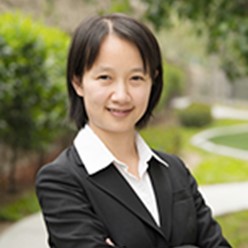 Prof. Juanjuan Du obtained her B.S. in Chemistry at Peking University in 2007. She earned her Ph.D. in Chemical Engineering at University of California, Los Angeles (UCLA) in 2012. Her doctoral research was focused on protein-based nanomedicine. Dr. Du received postdoctoral training with Prof. Peter G. Schultz at the Scripps Research Institute (TSRI) and California Institute for Biomedical Research (Calibr) from 2013 to 2016. Her postdoctoral work established a new antibody engineering approach toward multi-specific antibody therapeutics. In 2016, Dr. Du starts her independent career as a tenure-track assistant professor in School of Pharmaceutical Sciences in Tsinghua University. Du lab currently aims to develop new protein engineering methods and nanotechnologies to solve the critical challenges in developing protein therapeutics and vaccines.
Prof. Juanjuan Du obtained her B.S. in Chemistry at Peking University in 2007. She earned her Ph.D. in Chemical Engineering at University of California, Los Angeles (UCLA) in 2012. Her doctoral research was focused on protein-based nanomedicine. Dr. Du received postdoctoral training with Prof. Peter G. Schultz at the Scripps Research Institute (TSRI) and California Institute for Biomedical Research (Calibr) from 2013 to 2016. Her postdoctoral work established a new antibody engineering approach toward multi-specific antibody therapeutics. In 2016, Dr. Du starts her independent career as a tenure-track assistant professor in School of Pharmaceutical Sciences in Tsinghua University. Du lab currently aims to develop new protein engineering methods and nanotechnologies to solve the critical challenges in developing protein therapeutics and vaccines.
